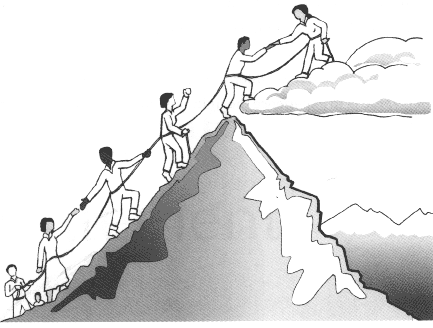
Cooperation situations make up a significant part of interaction situations. Cooperation between agents has been a problem since many years, even before multi-agent systems came into existence. It is often one of the key concepts in distributed artificial intelligence, and many projects regarding the problems associated with agent cooperation are currently being undertaken. A recent one is that of reactive cooperation (cooperation by agents which just react to the environment that surrounds them).
Cooperation can be considered as agents deciding to work together, or the various actions of different agents depending on each other (Interdependence of Actions), with a special emphasis on the communication between these agents.
If we consider cooperation to be characteristic of the posture that agents take towards working together, this means they are all involved in performing the same action once they identify and adopt a common aim. We can exemplify this with the creation of an association in the human world. Members of this group identify a common objective, say raise money for a particular charity, and they then commit themselves to doing something for this (a common task), for example, holding a Jumble Sale. This is how the association is set up.
Cooperative activity can also be described by the following set of indicators:
Uncertainties like "how to measure the robustness of a system", or "what is considered to be a quick resolution of conflict" need to be dealt with, otherwise we may just be attempting to describe the concept of cooperation, without giving a reliable definition.
From the previous set of indicators, we can build other, more complex indicators.